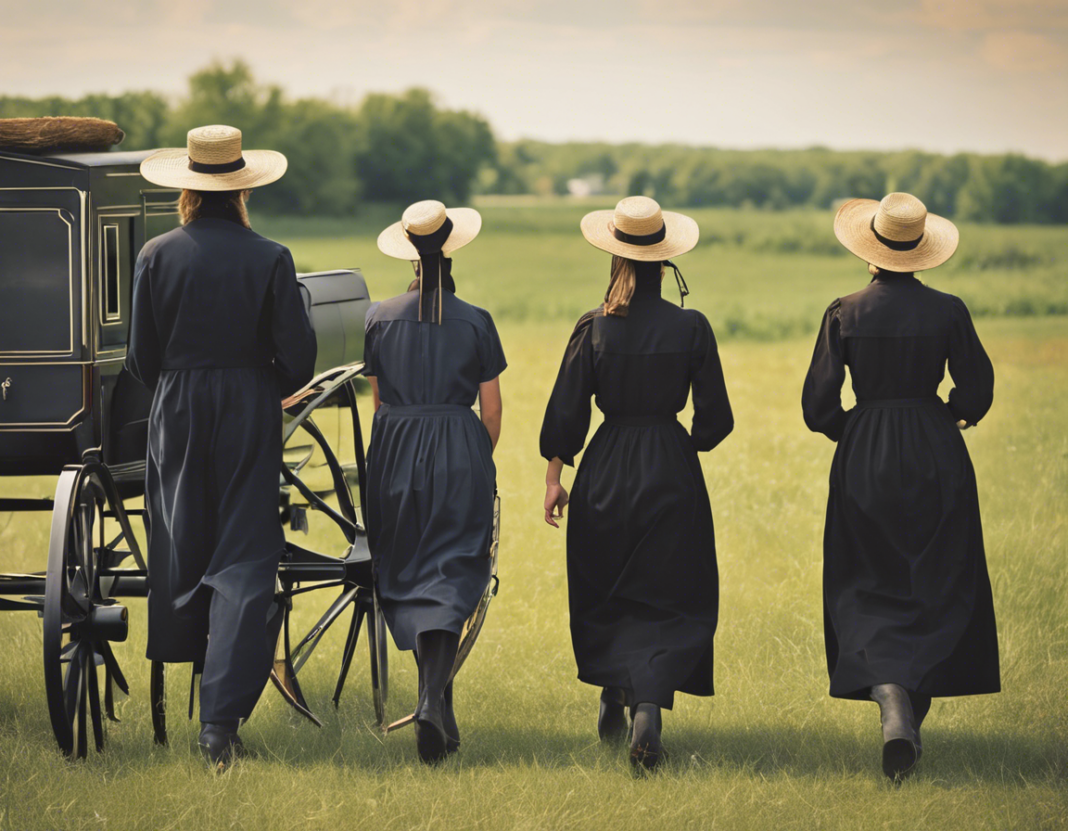Exploring Traditional Amish Names: A Unique Insight
The Amish community is known for its rich cultural heritage, unique lifestyle, and steadfast commitment to traditional values. One notable aspect of Amish culture is their names, which reflect their deep-rooted beliefs and ancestry. Traditional Amish names are often chosen with great care and significance, honoring family members, religious figures, or meaningful virtues. In this article, we will delve into the fascinating world of Amish names, exploring their origins, meanings, and cultural significance.
History of Amish Names
The history of Amish names can be traced back to their European roots, particularly German and Swiss influences. When the Amish immigrated to North America in the 18th and 19th centuries, they brought with them their naming traditions. Amish names often reflect their religious beliefs, with many names inspired by figures from the Bible or virtues emphasized in their faith.
Common Themes in Amish Names
Amish names often revolve around certain themes or patterns that hold special significance within the community. Some common themes in Amish names include:
1. Biblical Names
Many Amish names are derived directly from the Bible, with popular choices like Abraham, Sarah, Jacob, and Rebecca. These names serve as a constant reminder of their faith and heritage.
2. Virtue Names
Virtue names are also prevalent in the Amish community, reflecting values such as humility, patience, and obedience. Examples include Grace, Hope, Charity, and Joy.
3. Family Names
Family names hold great importance in Amish culture, with children often named after grandparents, parents, or other relatives as a way of honoring their legacy and heritage.
Unique Characteristics of Amish Names
Amish names are known for their simplicity, humility, and connection to nature. Unlike modern trends that favor uniqueness and creativity, Amish names prioritize tradition, family ties, and spiritual significance. Surnames are also significant in the Amish community, often indicating one’s lineage or place of origin.
Gender-Specific Names
In the Amish tradition, there are distinct names for boys and girls, each with its own set of popular choices. Boys’ names often reflect strength, honor, and biblical figures, while girls’ names emphasize virtues, beauty, and grace.
Popular Amish Names
Some popular Amish names that have stood the test of time include:
- Boys: Levi, Isaac, Caleb, Ezekiel
- Girls: Hannah, Esther, Ruth, Lydia
These names carry a sense of timelessness and tradition, resonating with the core values of the Amish community.
FAQs About Amish Names
1. What is the significance of naming traditions in the Amish community?
Naming traditions in the Amish community hold deep cultural and religious significance, reflecting their values, beliefs, and heritage. Names are chosen with care and often honor family members or virtues held in high regard.
2. Are Amish names only influenced by biblical figures?
While biblical names are prevalent in the Amish community, they also draw inspiration from virtues, nature, and family heritage. Naming practices vary among different Amish sects and regions.
3. Do all Amish names have meanings?
Many Amish names have known meanings, often rooted in biblical references or symbolic significance. Giving a child a meaningful name is considered a meaningful and intentional act in the Amish tradition.
4. Can Amish individuals choose their own names?
In most cases, Amish children are given names by their parents or elders within the community. Names are typically chosen based on cultural traditions, family ties, and religious significance rather than personal preference.
5. Are there any naming taboos in the Amish community?
In the Amish community, certain names may be avoided due to negative connotations, historical associations, or cultural taboos. Amish names are selected with the utmost care to reflect positive values and honor the family’s heritage.
In conclusion, Amish names offer a unique glimpse into a culture that values tradition, faith, and community above all else. Each name carries a story, a legacy, and a connection to a rich tapestry of history and heritage. By exploring the origins, meanings, and significance of traditional Amish names, we gain a deeper appreciation for the values that shape this remarkable community.

